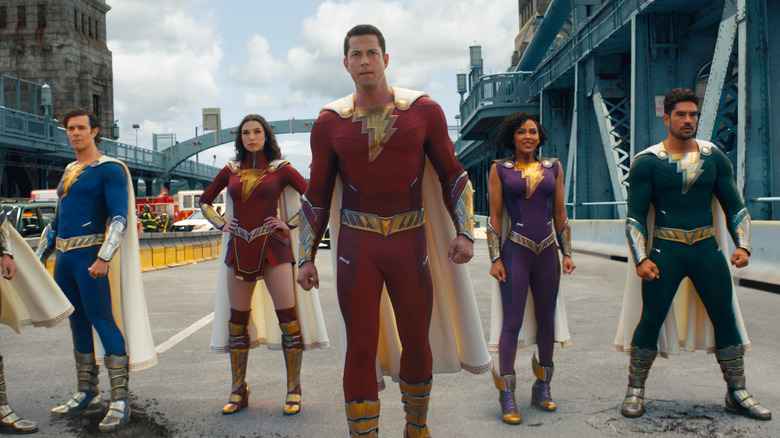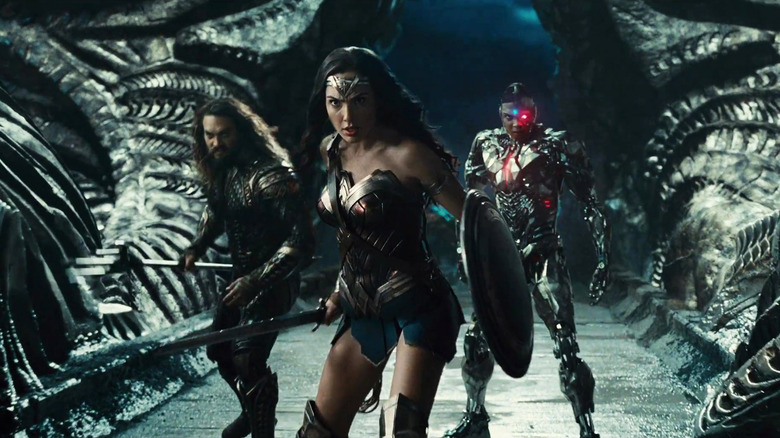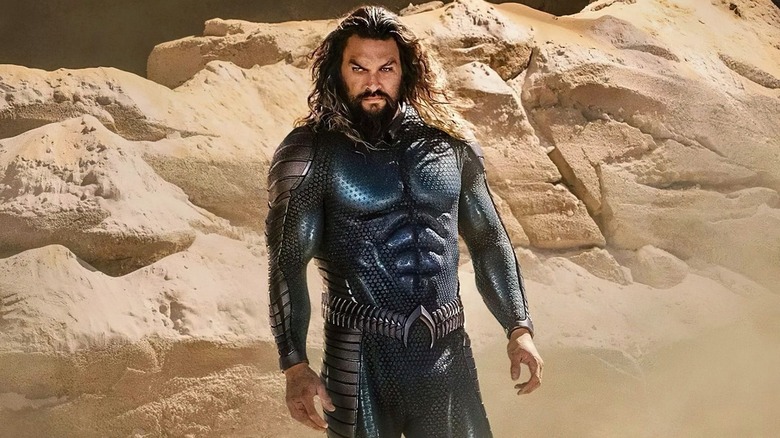DC's Snyderverse Is Ending, But Don't Give Up On The Final Films
The DC Universe as we have come to know it has pretty much come to an end. After the release of "Shazam! Fury of the Gods," "Blue Beetle," "Aquaman and the Lost Kingdom," and the beleaguered "The Flash," the series will be rebooted entirely. Future Superman, Batman, and Wonder Woman installments with their known casts have been canceled, as the company's new DC poobahs, James Gunn and Peter Safran, have taken control of Warner Bros.' superhero characters and will start afresh with a new series.
Many are excited for the future. Others are dismayed. Distressingly, some have come to ask why they should watch the next four DC movies at all. To examine, let us briefly walk through the last nine years of the DCU.
Ever since the series launched in 2013 with the release of Zack Snyder's "Man of Steel," it has drawn a great deal of debate, criticism, and outright defensive rancor from its fans. Many of the films were received poorly by critics, and were jeered by many audiences. "Man of Steel," already aggressive and noisy, was followed by the even more overblown "Batman v Superman: Dawn of Justice," a film rightly mocked for its silly dialogue and incomprehensible plot. It notably received a mere 29% approval rating on Rotten Tomatoes.
That was followed by the notoriously troubled "Suicide Squad" in 2016, which did little positive other than cast Margot Robbie in the role of Harley Quinn. Patty Jenkins' 2017 film version of "Wonder Woman" was mercifully well-received, leading into the massive team-up movie "Justice League" that same year. That film, as has been recorded, experienced massive recuts, changed directors due to personal tragedy, and was re-written incessantly. Immediately, some audiences implored a restoration of the film as Snyder might have intended it.
Interconnectivity
Warner Bros., of course, was clearly following the pattern for superhero movies that had proven so lucrative for Marvel. That is: introduce a single character in their own film, imply that they may interact with other superheroes in a future film, then eventually make said film wherein large groups of superheroes meet and interact. "Justice League" proved that formula doesn't necessarily work on its own merits.
Seven additional films in the series have been released since, all to varying levels of success and quality. "Aquaman" was idiocy, but admittedly fun. "Shazam!" is one of the best superhero movies ever made. "Wonder Woman 1984" is abysmal. Many loved the antics of "Birds of Prey" and "The Suicide Squad," although the last three films were stymied at the box office by post-COVID release patterns. HBO infamously paid $70 million to expand "Justice League" into a four-hour epic that was, at the end of the day, about as entertaining as the theatrical cut. Fans of Zack Snyder may send any elicited angry comments to the author's social media pages where they will be very carefully ignored.
If social media is any gauge, frustrations arose over a lack of stated intent from the studio's marketing. While Marvel seemed to have all of their solo films tightly interlinked, and their crossover movies meticulously choreographed — not to mention announced on whole timelines years in advance — DC seemed to flounder with tone, intention, and timeline. Was the DCU meant to be steely and aggressive like "Man of Steel," or jokey and light like "Shazam!?" How were films meant to link together? Was there going to be another team-up movie after "Justice League?"
And here we arrive at the present, and the closure of the DCU as we have come to know it.
Why watch the last movies?
It is also here that we arrive at the question as to why audiences should attend "Shazam," "Blue Beetle," "Aquaman," and "The Flash." In short: you should watch these movies because they might be good movies, full stop.
Thanks to the success of the Marvel Cinematic Universe, as well as the ubiquity of long-form, episode-eschewing TV storytelling that has dominated the medium for the last 20 years, audiences have now been trained to see each film in a superhero series as a piece of a larger puzzle. One film may be exciting on its own, but many find a great deal more excitement in speculating over how the events from one film will eventually affect another. This has worked well for the MCU, of course, as that series is seemingly as immortal as Jason Voorhees. It's been split into "phases," and each one (Phase 4 notwithstanding) climaxed in a giant team-up event. A season finale, if you will.
But not all films are part of the MCU, and not all films should be thought of in those terms. Each film, this old man can assure you, can be accepted on its own terms.
I cannot comment on the events of the four upcoming DCU features. I haven't seen them. Perhaps they set up sequels that will never be made. Perhaps they will feature proper conclusions — or even deaths — for their characters. Perhaps there will be a "Flashpoint"-style twist wherein the Flash opens up a door to other parallel universes, keeping everything neatly canonical. The point here, though, is to, at least temporarily, ignore all notions of canon and interconnectivity. Appreciate the characters and their individual dramas independent of their bearing on other movies.
Four great movies could potentially be discovered.


